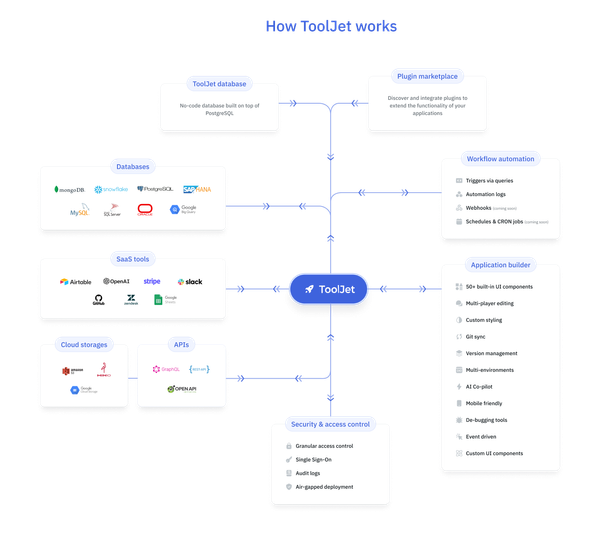Money Borrowing Apps And Their Cons If You Are Trying To Create Your Small It Business
Table of Content
Money borrowing apps have become increasingly popular for individuals and small businesses seeking quick and convenient access to funds. However, if you are trying to create your small IT business, it is important to understand the potential drawbacks of relying on these apps for financing. High interest rates and fees are among the cons that can significantly impact your business's profitability.
Additionally, these apps often have limited borrowing capabilities, which may not meet your business's financial needs in the long run. Another concern is the potential for fraud and identity theft when sharing personal and financial information through these platforms. Thus, exploring alternative funding options becomes crucial for safeguarding your small IT business's success. By being aware of the risks associated with money borrowing apps, you can make informed decisions about financing strategies that best suit your entrepreneurial goals and ensure long-term sustainability.
Understanding the Risks of Money Borrowing Apps
You should be cautious when using money borrowing apps for your small IT business, as they can potentially expose you to various risks and drawbacks. While these loan apps offer convenience and quick access to funds, they also come with their fair share of downsides. One major concern is the lack of transparency in terms of interest rates and fees. Many money borrowing apps charge exorbitant interest rates that can quickly accumulate, leading to a significant financial burden on your business. Additionally, some apps may impose hidden fees or penalties for late payments or early repayment.
Another risk associated with money borrowing apps is the possibility of falling victim to fraudulent activities. Since these platforms operate online, there is always a chance of encountering scammers who may pose as legitimate lenders. These fraudsters often use sophisticated techniques to deceive borrowers into providing personal information or making upfront payments before disappearing without granting any loan.
Furthermore, relying solely on money borrowing apps can limit your options in terms of funding sources. Traditional lending institutions such as banks may offer better interest rates and more favorable loan terms compared to these digital platforms.
While money borrowing apps provide a quick solution for obtaining funds for your small IT business, it is crucial to approach them with caution due to the potential risks involved. High interest rates and fees are just one aspect worth considering; therefore, exploring alternative financing options might be beneficial for long-term success in establishing your business without falling into unnecessary debt traps caused by these apps' drawbacks.
High Interest Rates and Fees
With the exorbitant interest rates and fees, it's no wonder that small IT businesses may find themselves overwhelmed by borrowing from these apps. Money borrowing apps often charge high interest rates compared to traditional lenders, making it difficult for small businesses to repay their loans. These high rates can quickly accumulate, leading to a significant financial burden on the borrower.
Additionally, money borrowing apps often impose various fees on borrowers. These fees can include origination fees, late payment fees, and even penalties for early repayment. For small IT businesses with limited cash flow, these additional costs can put a strain on their finances and hinder their ability to grow and invest in their business.
The combination of high interest rates and fees means that borrowing from these apps can be an expensive venture for small IT businesses. It may result in them paying back significantly more than they originally borrowed, ultimately impacting their profitability.
Furthermore, these high costs can limit the amount of capital available for small IT businesses to borrow. With limited borrowing capabilities, they may not be able to secure enough funds to support their growth initiatives or meet unexpected expenses.
The exorbitant interest rates and fees associated with money borrowing apps pose significant challenges for small IT businesses looking to create or expand their ventures. These costs can quickly become overwhelming and restrict the financial resources necessary for growth and success in the industry.
Limited Borrowing Capabilities
Limited borrowing capabilities can hinder the growth and success of small IT businesses in the face of exorbitant interest rates and fees imposed by money borrowing apps. These apps often have strict lending criteria, making it difficult for small IT businesses to access the funds they need to expand their operations or invest in new technology. The limited borrowing capabilities of these apps can restrict entrepreneurs from seizing potential opportunities and staying competitive in a rapidly evolving industry.
One major limitation is the low borrowing cap set by these apps. They typically offer only small loan amounts, which may not be sufficient for IT businesses with ambitious growth plans. As a result, entrepreneurs may need to seek alternative funding sources or compromise on their business goals.
Furthermore, these apps often have stringent repayment terms that may not align with the cash flow patterns of small IT businesses. This can lead to financial strain and difficulty meeting repayment obligations, especially when coupled with high interest rates.
In addition to these challenges, limited borrowing capabilities also increase the risk of fraud and identity theft for small IT businesses. Desperate for capital, entrepreneurs might turn to unverified lenders or resort to providing sensitive personal information through insecure platforms.
As such, it becomes crucial for small IT businesses to carefully evaluate the pros and cons before using money borrowing apps as a source of financing.
Potential for Fraud and Identity Theft
The potential for fraud and identity theft in these platforms can pose significant risks for small IT businesses, jeopardizing their financial security and reputation. Money borrowing apps often require users to provide personal and financial information to complete the loan application process. This sensitive data, if not properly protected, can be vulnerable to hackers and cybercriminals who can exploit it for fraudulent activities or identity theft.
One common method used by fraudsters is creating fake loan applications that mimic legitimate borrowers. They use stolen identities to access funds and disappear without a trace, leaving the small IT business responsible for repaying the borrowed money. Moreover, some money borrowing apps may not have robust security measures in place to safeguard against data breaches or unauthorized access.
Another concern is that these apps may not thoroughly verify the identity of borrowers before granting them loans. This lack of stringent verification processes increases the risk of lending money to individuals with malicious intentions or poor credit history.
To mitigate these risks, it is essential for small IT businesses to explore alternative funding options that prioritize security and protection against fraud and identity theft. By diversifying their sources of financing and working with reputable lenders who have strong security protocols in place, small IT businesses can better protect themselves from potential financial losses and reputational damage while ensuring their growth and success in the industry.
Exploring Alternative Funding Options
Exploring alternative funding options can help small IT businesses prioritize security and protection against fraud and identity theft while ensuring their growth and success in the industry. While money borrowing apps may offer convenience, they also come with potential risks that could compromise sensitive information. Therefore, considering other avenues for financing becomes crucial.
One alternative funding option is seeking traditional bank loans. Although the application process may be more time-consuming and require extensive documentation, it provides a level of security as these institutions have stringent measures in place to protect their customers' data. Additionally, banks often offer competitive interest rates and flexible repayment terms tailored to suit the needs of small businesses.
Crowdfunding platforms present another viable choice. Through campaigns on websites like Kickstarter or Indiegogo, entrepreneurs can showcase their IT business projects to attract potential investors who share an interest in technology advancements. This allows for not only financial support but also valuable market validation from a diverse group of backers.
Small IT businesses can also explore government grants and subsidies specifically designed to promote innovation and technological development within the industry. These programs provide funding opportunities without any burdensome debt obligations, further reducing financial risk for fledgling ventures.
By diversifying funding sources beyond money borrowing apps, small IT businesses can safeguard themselves against potential fraud and identity theft while accessing necessary resources to fuel their growth plans securely.
Conclusion
In conclusion, entrepreneurs looking to create their small IT businesses should be cautious when considering money borrowing apps as a funding option. These apps may come with high interest rates and fees, limited borrowing capabilities, and potential risks of fraud and identity theft. It is important for business owners to explore alternative funding options that are more stable and secure for the long-term success of their ventures.





![13 Free PoS (Point of Sale) Systems for Retails, Cafes, and Restaurants [2024 Edition]](/content/images/size/w600/2024/10/pos--1--1.png)





